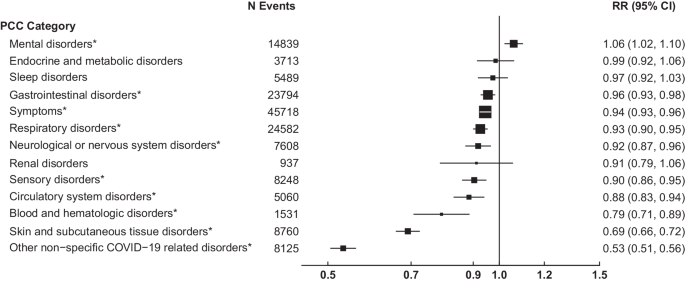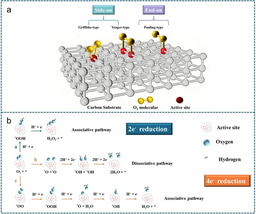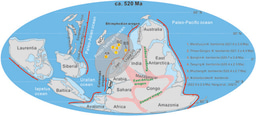COVID-19 vaccination protects against post-COVID conditions
Published in Microbiology, Pharmacy & Pharmacology, and Public Health
What are post-COVID conditions?
PCC, also known as post-acute sequelae of SARS-CoV-2 infection (PASC) or “Long COVID”, are conditions in which people experience persistent symptoms for weeks or months after the acute phase of COVID-19 illness has passed. While most people recover from COVID-19 without any long-term effects, about 1 in 4 patients continue to experience a range of symptoms that can significantly impact their daily activities.1 CDC data shows that PCC impacts over 1% of children and 6% of adults in the US.2,3
The symptoms of PCC range from the continuation of acute COVID-19 illness symptoms such as headache or shortness of breath, to long-term conditions such as chronic fatigue syndrome, cardiac arrythmias, or chronic obstructive lung disease. The breadth of symptoms demonstrates the complexity of PCC and the challenges they present for both patients and healthcare providers. Also, people with PCC may experience symptoms that overlap with existing chronic conditions, making diagnosis and management more complex.
The exact causes of PCC are still not fully understood, but several factors may contribute to their development, including persistent viral presence (where the virus lingers in the body), immune dysregulation (abnormal immune responses lead to prolonged symptoms), post-viral syndrome (the immune system remains overactive, even after the virus is cleared), or organ damage. Continued research on PCC will shed light on underlying mechanisms and enable health care professionals to better tailor interventions for the prevention and the treatment of PCC.
In this blog post, we’ll describe a study we conducted as part of a large network of integrated health care systems in the United States (US). Using data from these health care systems, we assessed the occurrence of new PCC outcomes after COVID-19 among vaccinated and unvaccinated people.
Why is this study important?
Although COVID-19 vaccinations are known to protect against severe COVID-19 illness and death,4 whether the vaccine also protects against PCC is less clear, and there is little data on vaccines protecting against PCC among children.
What did this study find?
The study found that rates of most post-COVID conditions (9 of 13) were significantly lower among patients who were vaccinated against COVID-19 prior to SARS CoV-2 infection. This association was seen across all age groups.
What is unique about this study?
With access to the electronic health records of all patients with COVID-19 who were treated at 8 large US health care systems, our study is one of the largest studies to look at the relationship between prior COVID-19 vaccination and post-COVID conditions in both children and adults. Previous studies were too small to measure some post-COVID conditions that are of particular concern to patients and clinicians—such as acute respiratory disorders, cardiac arrhythmias/postural orthostatic tachycardia syndrome (POTS), neurological disorders, and sensory disorders. Our study was able to confirm a strong protective effect of COVID-19 vaccination against these rarer outcomes because of its size. Also, few studies that have looked at the protective effect of COVID vaccines against PCC have included children and even fewer have included all ages within the same study.
Did this study show anything unexpected?
Our study found that, on average, vaccinated patients with COVID-19 had a slightly higher risk of anxiety, depression, and mood disorders compared to unvaccinated patients with COVID-19 during the same period. Although it is not possible to know for sure, we suspect this link was in part due to differences in health care utilization behavior between vaccinated and unvaccinated people. Previous studies have found that anxiety and depression are linked with health care seeking behaviors such as getting vaccinations.5 In simple terms, what we observed could be translated to “people infected with COVID-19 who were vaccinated were more likely to seek care for anxiety than people infected with COVID-19 who were unvaccinated.” One could argue that any additional health care intervention may cause people to have increased anxiety, including vaccination.
What is the wider significance of the study findings?
Post-COVID conditions are complex and can have a profound impact on people’s lives. While much remains to be understood about their causes and mechanisms, health care providers and researchers are actively working to find effective treatments and strategies to support patients. Our study shows that as well as preventing infections, severe illness and death, COVID-19 vaccines have a clear protective effect on longer term post-COVID conditions. Therefore, this study adds additional evidence for the value and benefit of COVID-19 vaccination.
- Ford ND, Slaughter D, Edwards D, et al. Long COVID and Significant Activity Limitation Among Adults, by Age — United States, June 1–13, 2022, to June 7–19, 2023. MMWR Morb Mortal Wkly Rep 2023;72:866–870. DOI: http://dx.doi.org/10.15585/mmwr.mm7232a3
- Vahratian A, Adjaye-Gbewonyo D, Lin JS, Saydah S. Long COVID in children: United States, 2022. NCHS Data Brief, no 479. Hyattsville, MD: National Center for Health Statistics. 2023. DOI: https://dx.doi.org/10.15620/cdc:132416
- Adjaye-Gbewonyo D, Vahratian A, Perrine CG, Bertolli J. Long COVID in adults: United States, 2022. NCHS Data Brief, no 480. Hyattsville, MD: National Center for Health Statistics. 2023. DOI: https://dx.doi.org/10.15620/cdc:132417
- Tenforde MW, Self WH, Gaglani M, Ginde AA, Douin DJ et al. Effectiveness of mRNA Vaccination in Preventing COVID-19-Associated Invasive Mechanical Ventilation and Death - United States, March 2021-January 2022. MMWR Morb Mortal Wkly Rep. 2022 Mar 25;71(12):459-465.
- Carlton CN, Garcia KM, Andino MV, Ollendick TH, Richey JA. Social anxiety disorder is Associated with Vaccination attitude, stress, and coping responses during COVID-19. Cognit Ther Res. 2022;46(5):916-926.
Follow the Topic
-
Nature Communications

An open access, multidisciplinary journal dedicated to publishing high-quality research in all areas of the biological, health, physical, chemical and Earth sciences.
Related Collections
With Collections, you can get published faster and increase your visibility.
Women's Health
Publishing Model: Hybrid
Deadline: Ongoing
Advances in neurodegenerative diseases
Publishing Model: Hybrid
Deadline: Mar 24, 2026






Please sign in or register for FREE
If you are a registered user on Research Communities by Springer Nature, please sign in